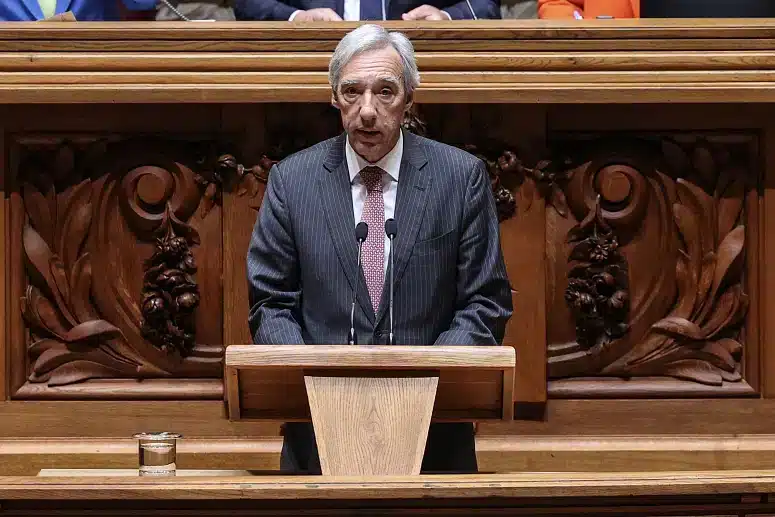Foreign Minister João Gomes Cravinho defended today that the defeat of Ukraine would be the “victory of imperialism over multilateralism and international law” and that in this scenario Portugal would be “as much a loser” as the Ukrainians.
“The defeat of Ukraine would be the victory of imperialism over multilateralism and international law. If that is the outcome, countries like Portugal and most of the nations that make up the international community would be as big losers as Ukraine,” Gomes Cravinho argued.
The head of Portuguese diplomacy was speaking at the thematic debate on the situation in Ukraine, held today in the Assembly of the Republic, on the day that marks one year since the beginning of the Russian invasion of Ukraine.
Cravinho maintained that “the survival and victory of multilateralism and international law is not just a matter of ideology.
“It is a vital issue, also for Portugal. We must be able to count on an international system and mechanisms for dialogue based on rules, so that our sovereignty and ability to decide our own destiny are fully guaranteed,” he added.
In a 15-minute speech in which he recalled Portugal’s support for Ukraine since the beginning of the conflict, Cravinho said that the return of war “on a large scale in Europe at the hands of Vladimir Putin” forced “a confrontation of ideas about the present of the European continent and the future of the international order”.
“Let us not forget today, on this sad anniversary, that the great battle being fought in Ukraine is between a return to the law of the jungle, which characterised the first half of the 20th century, and the survival of multilateralism based on the rules of international law, dialogue and diplomacy,” he stressed.
Cravinho also pointed out that “it is one of the paradoxes and tragedies of international life that there are times when peace can only be won by force of arms” and that “the Ukrainians’ fight for their territory is also a fight for a more decent, orderly and peaceful world”, which is the inherent right of self-defence “available to any attacked nation, a right provided for in Article 51 of the United Nations Charter”.
“It is in this context that we have already delivered some 315 tonnes of military equipment, a figure that will rise to 532 tonnes with the next shipment, including armoured vehicles, generators, ammunition, and medical and sanitation equipment. We have tried at all times to meet Ukraine’s most urgent military needs to the best of our ability and with great generosity,” he said.
The Foreign Secretary also assured the House that the government’s and Prime Minister’s word on financial support for Ukraine would be “fully honoured”.
The minister was asked by the leader of Chega, André Ventura, about a report in the Jornal de Negócios that Portugal’s promised support of 250 million euros would not be delivered in full.
“With regard to the support announced, there is a very simple point that can be emphasised: the word given must be kept, the Prime Minister’s word on financial support is a word that will be fully respected,” assured Gomes Cravinho.
Jornal de Negócios writes today that “the 250 million in financial aid will no longer reach Kiev” and that “Portugal is now only committing to a 55 million guarantee to leverage the joint financing of the 27 to the Ukrainian budget, without providing bilateral aid.
In his opening remarks, the Foreign Minister had already highlighted the signing in May last year of a 250 million euro financial cooperation agreement with Ukraine, which includes the transfer of Special Drawing Rights in the International Monetary Fund.
“Portugal supports what it can, but we don’t need to go around Europe making figures when it’s time to put the money on the table,” the Chega leader had criticised.
André Ventura also asked the Minister to clarify both this figure and when the announced tanks and helicopters would arrive, as well as whether or not Portugal would declare Russia a state sponsor of terrorism.
The Foreign Minister spent almost all of his 16 minutes on his opening statement, leaving only 30 seconds to respond to the parties’ requests for clarification.
The leader of the BE, Pedro Filipe Soares, asked the government to clarify its role in promoting peace, which he said was “sometimes ambiguous”, and deplored the “escalation of arms”.
The BE MP also asked the government to explain some cases of “failure in the reception of Ukrainian refugees”, especially children, many of whom are not in the education system.
In his response, the Minister emphasised the humanitarian dimension, pointing out that many of the Ukrainian children who do not attend school “take ‘online’ classes and receive their education in a different way”.
Gomes Cravinho stressed that in addition to the humanitarian, political, and financial dimensions, Portugal’s support for Ukraine also has “a military dimension that cannot be refused.









